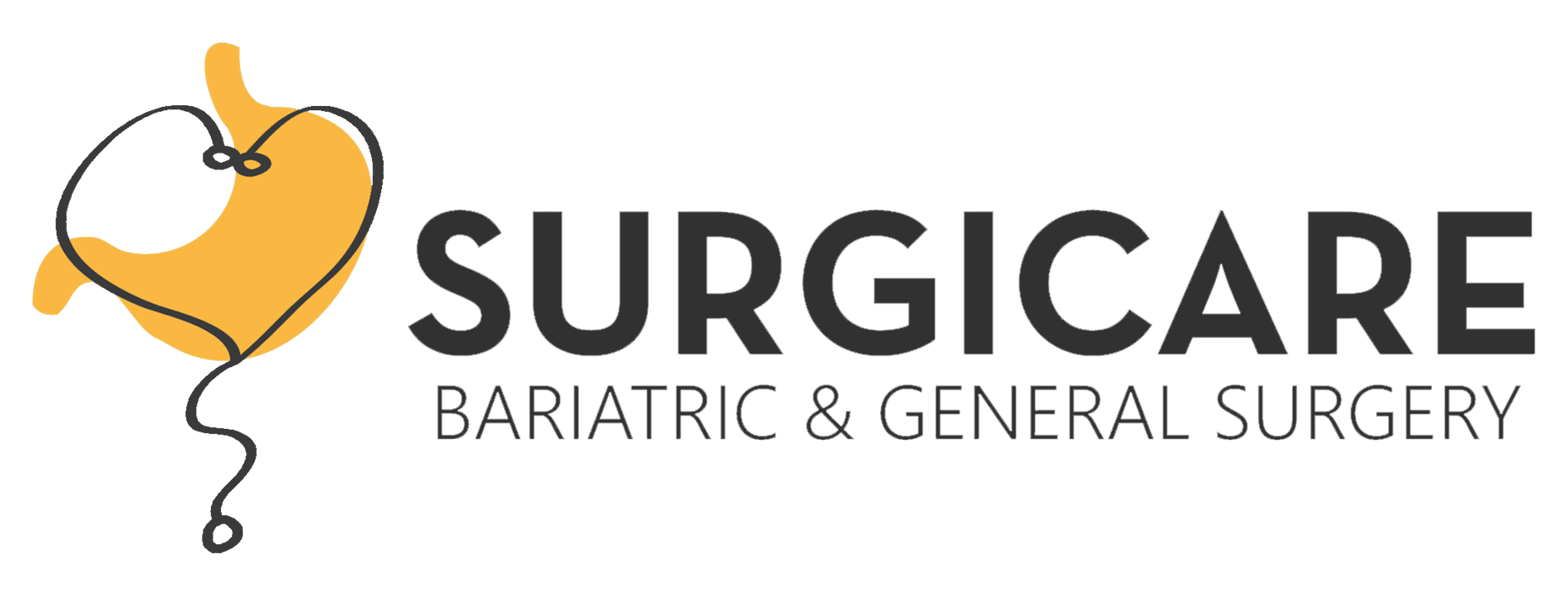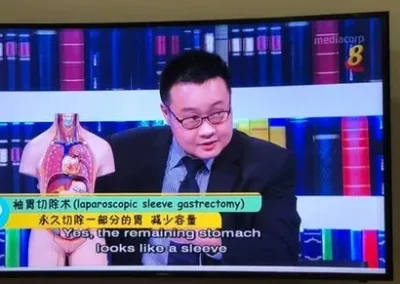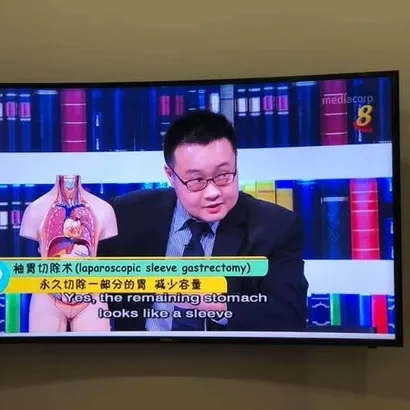Severe pain in the abdomen may be an indication of gallstones.
Seek relief and prevent recurrence with our gallbladder specialist:
- Dual Fellowship-Trained Surgeon
- 20+ Years of Clinical Experience
- Expertise in Minimally Invasive Surgery
- Insurance and Medisave Claimable
Clinic Hours
Mon – Fri: 8.30am – 5.30pm
Saturday : 8.30am – 12.30pm
Sun and Public Holidays: Closed
Visit Us
Surgicare Bariatric and General Surgery
6A Napier Road, #05-36A,
Gleneagles Hospital Annexe Block,
Singapore 258500
For emergencies 24/7, head to Gleneagles Urgent Care Centre (UCC) and request for Dr. Tan Chun Hai. Do WhatsApp us as you make your way to the UCC.
Clinic Hours
Mon – Fri: 8.30am – 5.30pm
Saturday : 8.30am – 12.30pm
Sun and Public Holidays: Closed
Visit Us
Surgicare Bariatric and General Surgery
6A Napier Road, #05-36A,
Gleneagles Hospital Annexe Block,
Singapore 258500
For emergencies 24/7, head to Gleneagles Urgent Care Centre (UCC) and request for Dr. Tan Chun Hai. Do WhatsApp us as you make your way to the UCC.

Our Gallbladder Specialist
Dr. Tan Chun Hai
Upper Gastrointestinal, Bariatric & General Surgeon
MBBS (Melbourne), Masters of Medicine (Surgery), FRCS (Edinburgh), FAMS (General Surgery)
20+ Years of Clinical Experience
Languages: English, Mandarin, Hokkien
Dr. Tan Chun Hai is a dual fellowship-trained specialist in laparoscopic (keyhole) stomach cancer surgery, and Bariatric & Metabolic surgery. His clinical expertise includes the use of minimally invasive surgical techniques for stomach-related diseases, gallstones, appendicitis and Gastroesophageal Reflux Disease.
Dr. Tan also specialises in performing endoscopies and treating digestive disorders, which include abdominal pain and bloating, heartburns, Dysphagia (trouble swallowing) and an abnormal loss of weight. Dr. Tan is the current President of the OMSSS (Obesity and Metabolic Surgery Society of Singapore). He is an accredited surgeon across all private hospitals in Singapore.
Understanding gallbladder diseases and your treatment options
The Gallbladder is a small sac-like organ located below your liver. Its function is to store bile produced by the liver, which aids digestion. Gallstones are formed from hardened bile, and if the bile contains high levels of cholesterol or bilirubin, it can harden into stones
Gallbladder diseases refer to the infection or inflammation of the gallbladder. Complications usually occur due to blockages caused by gallstones that form in the gallbladder.
Your doctor may prescribe medications to treat mild symptoms. However, when your symptoms are severe and frequent, surgery may be recommended to remove the gallbladder. Surgery can be carried out in a minimally invasive manner and is regarded as a long-term solution for complications related to the gallbladder.
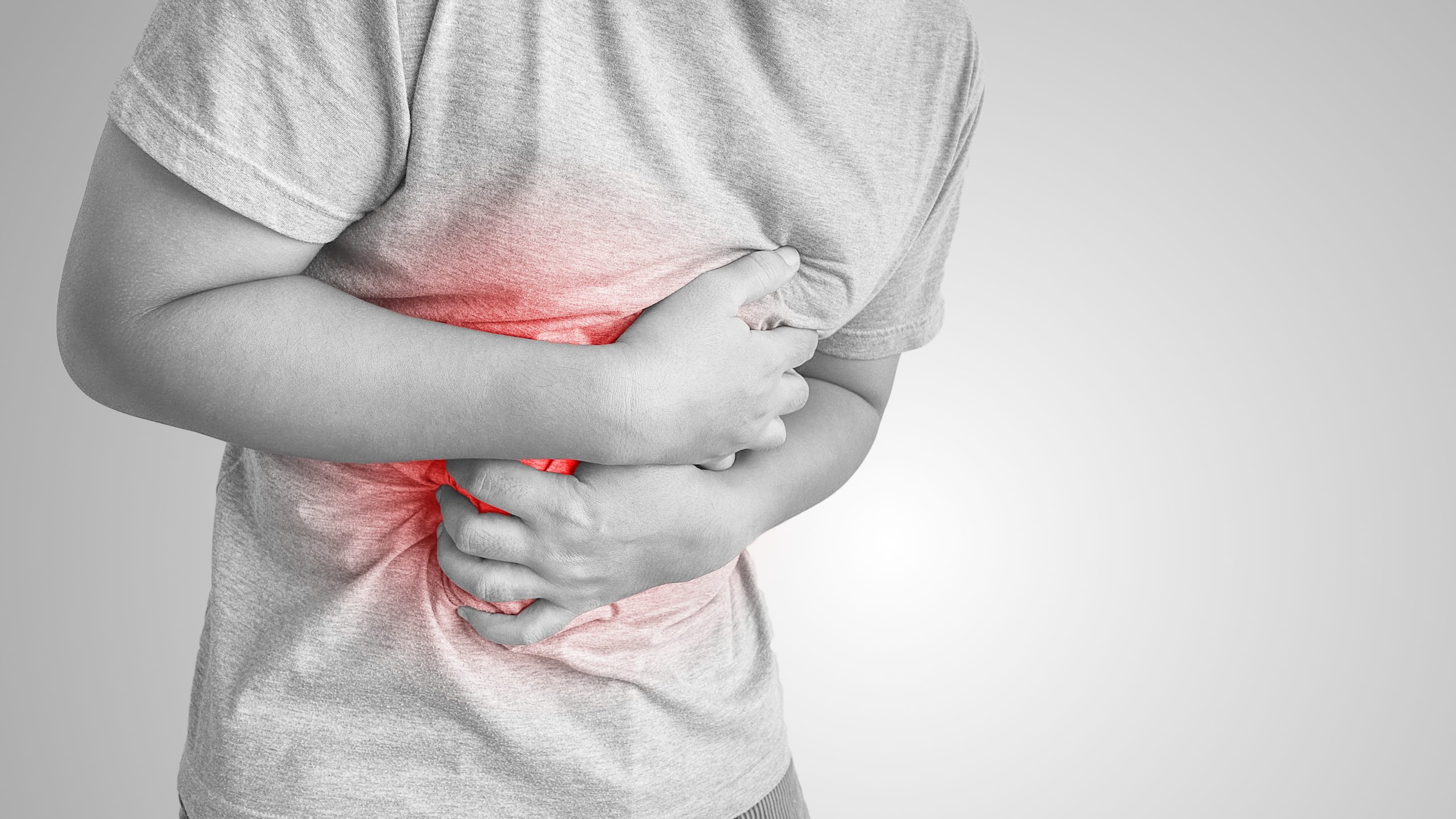
Symptoms of a Gallstone Attack
Gallbladder attacks may occur following meals (although not always). An initial sign is pain in the abdomen. In some cases, the pain may radiate to the back between the shoulder blades. Some patients may also experience fever, chills, nausea, and vomiting. Gallstone attacks can be painful and debilitating. They may also recur.
When is Gallbladder Surgery Necessary?
Gallstones are the most common reason patients need surgery as a gallstone attack can cause severe pain and last for several hours. A gallbladder surgery is warranted to prevent such a scenario from happening or recurring.
Known as a laparoscopic cholecystectomy, surgery is carried out with a minimal invasive technique to remove the gallbladder. This provides a permanent solution to prevent gallstones from getting stuck in the bile duct and cause recurring pain.
Patients generally go on to live perfectly normal lives even with their gallbladder removed. Other gallbladder conditions that may qualify for surgery include Acute Cholecystitis (inflammation of the gallbladder), Acute Pancreatitis (inflammation of the pancreas), and Acute Cholangitis (inflammation of the bile duct).
Seek relief from disabling gallstone attacks.
When Should I See a Doctor?
As soon as you experience symptoms that may be caused by gallstones, you should consider seeing a specialist. Pain caused by gallstones can become more frequent and intense, signalling that your condition may be getting serious.

How are Gallbladder Diseases Treated?
Treatment for gallbladder diseases and gallstones will depend on your condition and severity. In cases where symptoms are mild or not present, they may be managed by medications and dietary changes.
However, with more serious conditions, surgery may be recommended by your Doctor to remove the gallbladder. This is generally a safe procedure and patients can continue to lead a normal life even with their gallbladder removed.
Frequently Asked Questions
Who is at risk?
Risk factors that may include the likelihood of gallstones include:
- High cholesterol levels
- Diabetes
- Obesity
- Older age (above 60 years old)
- Women (20 – 60 years old)
- Family history of gallstones
- Rapid weight loss or prolonged fasting
- Excess estrogen levels
How are gallstones confirmed?
Your doctor will likely order for an Ultrasound to confirm the presence of gallstones. Ultrasound uses soundwaves to create an image of your organs and its structure. If you have gallstones, they will be seen in the image. Ultrasound is done while you are awake and does not hurt.
Should you need more tests, your doctor may call for other scans like a CT scan, MRI, HIDA scan or through endoscopic procedures.
What can I expect after surgery?
Patients usually recover well from Laparoscopic Chloecystectomy (Keyhole Gallbladder Surgery). You will be allowed to eat after surgery. Patients may be discharged the next day or the same day of the surgery.
In the case where you had open surgery, you might need more time to recover and required to stay in the hospital for a few days.
What is the recovery time after gallbladder surgery?
Most patients are able to resume normal activities within 1-2 weeks after surgery. Your Doctor may recommend that you avoid strenuous activities for a few weeks while allowing the incisions to fully heal.
Can I live a normal life with my gallbladder removed?
Yes, removing your gallbladder does not shorten your life expectancy. Absence of the gallbladder will also not affect your ability to digest food as bile will continue to flow from your liver into the small intestine.
Your Doctor will recommend to observe a low-fat diet initially after surgery. This will help introduce foods that are easier to digest as your body adjusts to functioning without a gallbladder. Patients will eventually be able to resume to a normal diet.
Types of Gallbladder Diseases
- Acute Cholecystitis (inflammation of the gallbladder)
- Acute Pancreatitis (inflammation of the pancreas)
- Acute Cholangitis (inflammation of the bile duct
- Biliary colic
- Gallbladder polyps
Risk Factors
- High cholesterol levels
- Diabetes
- Obesity
- Older age (above 60 years old)
- Women (20 – 60 years old)
- Family history of gallstones and gallbladder diseases
Prevalence o Gallstones in Singapore
In Singapore, symptomatic cases of gallstones (which requires medical attention) continues to be on the rise. Gallstones are present in about 10-20% of the population.
Gallstones are formed from hardened bile, and if the bile contains hight levels of cholesterol, bilirubin or bile salts, it hardens into stones. Gallstone sizes can vary from the size o a grain of salt to a golf ball.
Insurance and Medisave
Surgicare Bariatric and General Surgery is on the specialist panel of most Integrated Shield and Corporate Insurance Plans.
To ensure you peace of mind, our staff will be readily available to assist you with claims and financial estimates of your procedure(s).
Should you have any questions about your financing options, please do not hesitate to
contact us.
One Stop Centre for your Stomach-Related Concerns
Our team at Surgicare is committed to providing patients with the highest standard of medical care through a comprehensive suite of up-to-date and evidence-based procedures.
Surgical care when needed and where applicable, is provided with minimally invasive techniques, promoting less postoperative pain and a faster, and smoother recovery.
6250 5610
Call Us
8870 3848
Book an appointment
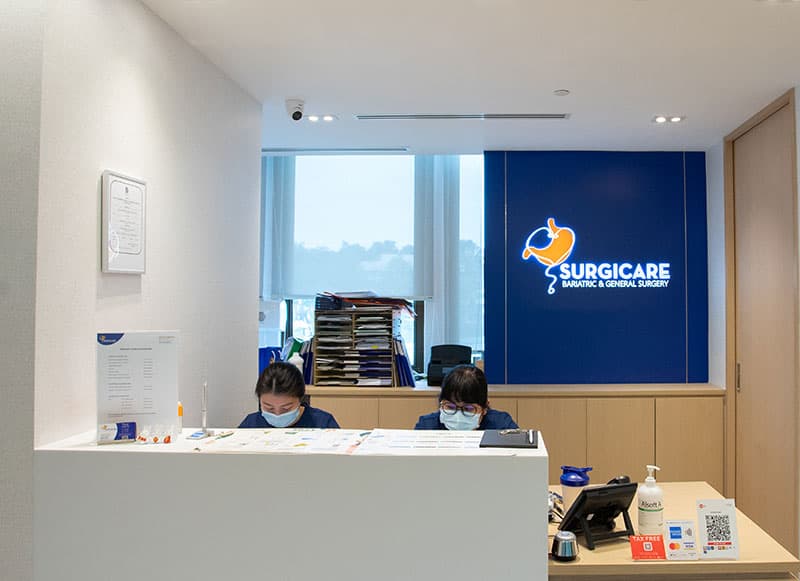
Dedicated Insurance Support
We are on the specialist panels of the following health insurance plans. We understand that navigating the financial aspect of healthcare can be overwhelming, so please do not hesitate to contact us if you have any questions about your coverage.
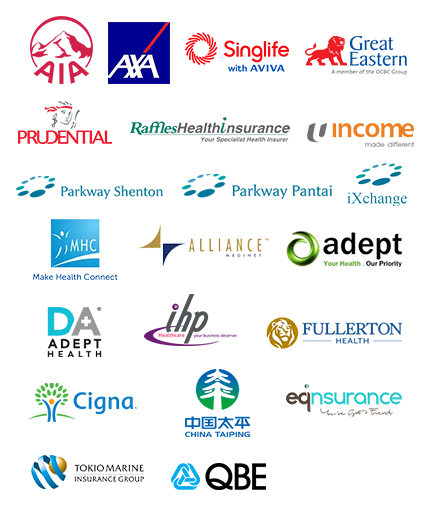



















For emergencies 24/7, head to Gleneagles Urgent Care Centre (UCC) and request for Dr. Tan Chun Hai
Do WhatsApp us as you make your way to the UCC.
